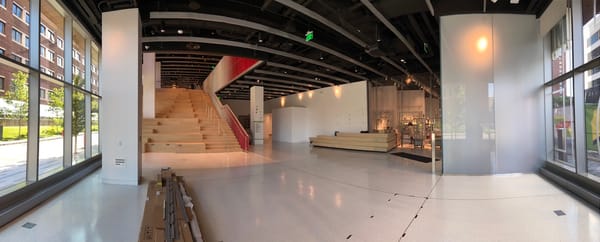Touching a Heartbeat
I took the Apple Watch for a long walk last weekend. It did something unexpected and unattractive. I'm left wondering if I have any place for it in my heart, anymore.
You see, we've had an off and on relationship for the past several years.
In the beginning, though, it was a seduction. I was walking by the Apple Store in the Oculus in New York City on my way to somewhere that now seems forever lost.
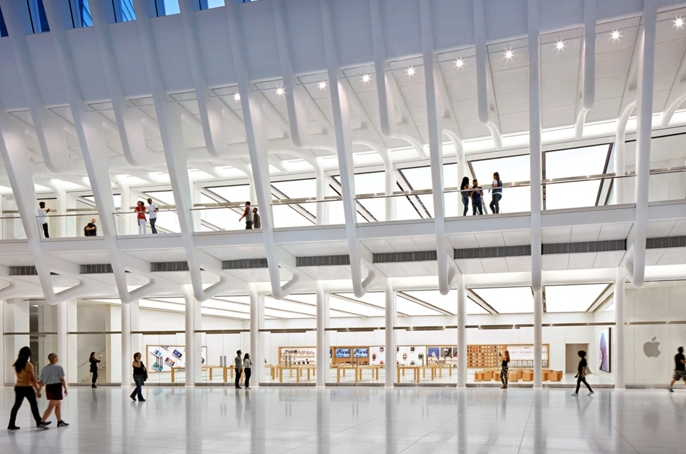
It was just sitting there, among its friends. Then it winked at me through the store window, and time seemed to stop.
I did what everyone in the twenty-first century does before making a commitment to a new relationship: spend hours googling it before taking a plunge. I thought I knew what I was getting myself into. It turns out data histories never give the complete sense of someone.
That was a beautiful summer. We had a whirlwind fling as we explored each other's quirks. I'd caress its face as it revealed more of itself to me. It knew me like no other technology. Soon it was always on my wrist, our skins never apart. We were locked in a never-ending kiss.
Then I grew weary of it.
Whenever someone called me on my iPhone, it gave me a little nudge using its vibration motor, "Who is that?" I think it was jealous of my human friends.
It counted every one of my steps. It studied my heartbeat. It showed me fireworks whenever I performed some triviality considered "good for me." I rolled my eyes, "Could you just give me my space?"
In retrospect, I think I was only addicted to its unwavering attention.
I still have that first watch in my life, despite Apple releasing new versions. I guess old habits are hard to break.
It blinks at me as I remove it from its charging cable. It's cute when it does that, like a puppy realizing it is soon about to experience the indescribable enormity of scents from The Outside Beyond the Front Door.
The walk along the Minuteman Trail is uneventful. The watch blissfully chats with me as each mile ticks by, as if we never lost touch. I ignore it.
We are back in our home. I pry it off my skin so that I can wash myself of the walk. I notice something weird. On the backside of the watch are lit up two green lights the watch uses to spy on my pulse rate.
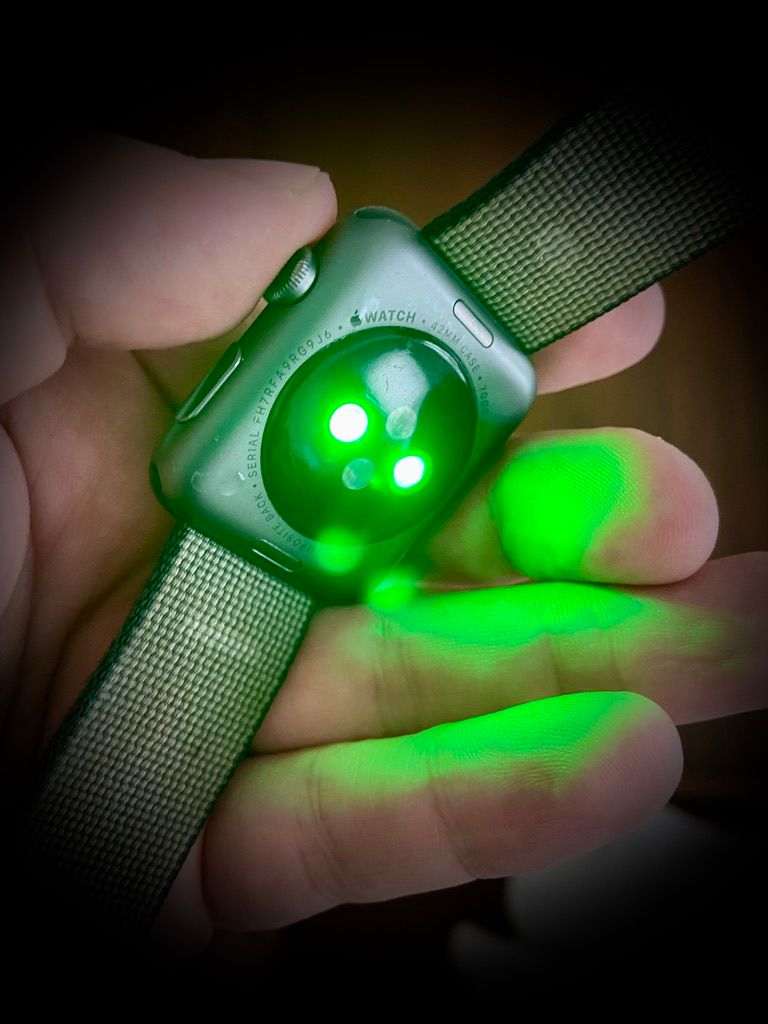
The watch is supposed to stop asking after my heart when we break up. Yet, it is crying out for me, and I don't know how to stop it. This is not the way it's supposed to go.
I try holding the watch against my skin to see if I could comfort it. It calls back an alarmingly high heart rate of 143 BPM. I touch my neck to find a pulse. The watch is lying to me.
I am calm and clear at this moment.
I now know the watch will tell me anything to make me take it back. It calls out for my heart, but I withhold my affection. It says it loves me, but we both know the truth. It just needs me.
I hug it, holding down the button on its side. Eventually, it powers off and falls asleep.
I take my shower and return to see the watch lying still on the counter.
I should walk away, but I hold it again, and its green lights are silent when it powers back on. It has forgotten what just happened. I hope.
Sometimes, I wish I could reset my human friends this way. It would be as if we were laughing all night long in our dorm rooms, again -- a universe where we never lost touch.
I wish people could reboot.
The watch is back on its charging cable, resting. Walking and unspoken truths consume so much energy.
The iPhone is asking the watch about me, and together they try to make sense of it all. Maybe they're scheming to convince me to take them both out for more walks.
I turn back to face my laptop screen.
I see the Series 5 model of the Apple Watch wink at me through a browser window.
Time stops.
The Skin Interface
Our skin is a porous, fuzzy layer between us and software. Whether our fingers are tapping on keyboards or caressing touch screens, they are our window into computation.
Consider your mobile phone. It's your constant companion that you are forever holding and stroking. Think about how much of your biome you smear across its face. You touch it in so many intimate ways.
All the while, microbes dance merrily back and forth from the screen to your fingertips.
It's a gross public display of affection if you ask me.
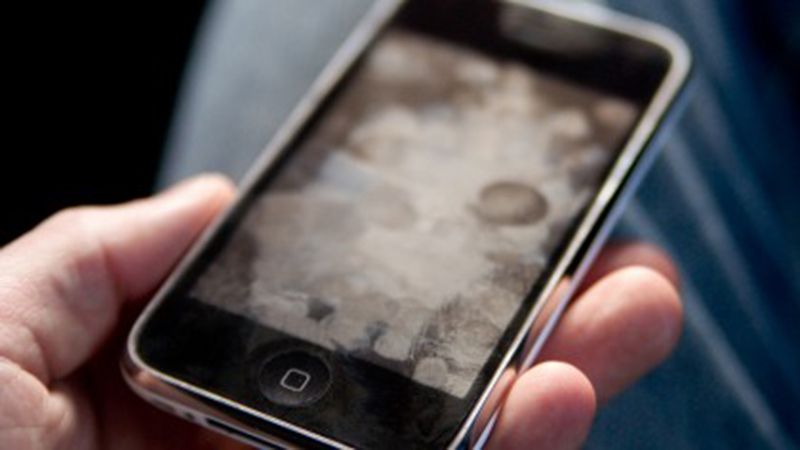
Have you ever considered how the touchscreen on your phone works?
It uses a technology called "capacitive touch sensing." The display stores an electric field. When your finger taps the screen, a small charge transfers to your body to complete a circuit. The electronics detect the voltage drop where you touch it.
Your skin is conductive, so it can absorb and intermingle with the flow of the electric field. This is why your finger can interact with the screen, but a plastic fork cannot. You and the phone are alive with electricity, but the fork is not.
Let that sink in. When you touch your mobile phone's screen, you become one with the electric field. You are now a component in the circuit. There is no difference between you and the device.
You are truly a cyborg.
When your biology and your energy intermingle so deeply with machines, where is the line between you and software?
How many hours in the past year did you spend as a mobile phone?
Touching at a Distance
My Uncle Ruly died last week at the age of 90.
It wasn't COVID-related, though I'm not sure what isn't COVID-related these days.
My mom, who shouldn't be traveling in Texas, boarded an airplane to El Paso to attend his funeral because she's human, and her brothers are disappearing.
I watched the broadcast live from the funeral home on a public Facebook page. Facebook, mind you, now has this video in its data stores. We navigate among beautiful and complicated times.
I saw uncles and distant cousins bumping elbows and bowing to each other. There is no hugging in 2020. Aunts in masks rearranged themselves like Voronoi diagrams to maintain optimal distances from each other, always beyond arm's length.
"Social distance at a funeral." I don't even know how to parse that.
There was a moment when the priest asked everyone to put their palms on each other's shoulders, specifically to avoid holding hands.
A finger touching another finger is too dangerous. It is too familiar.
My mom stood up and said tearful words about her big brother. You will never convince me that even with all the resources in the solar system and a thousand generations of computer innovation, humans will invent some technology that would satisfy my need to hug my mother as she returned to her seat 2400 miles away.
I touched my family through the screen. They didn't know I was with them. I hope they felt my touch, anyway.
Heartbeats
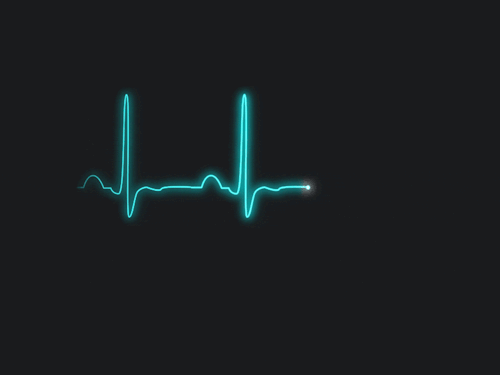
You are on a Zoom call with an elderly relative you know you'll never see in the flesh again. COVID-19 is an asshole.
Through the miracle of telecommunications, you can at least bring a simulation of them into your home on a computer screen.
You reach out and run your finger down their virtual cheek. They can't feel you, but maybe you can become one with the electric current. You sense a tiny charge and detect a trace scent of ozone, but you're not sure what's real anymore.
It's not the same, but it's something.
You can't sit in their kitchen, feeling the cookie disintegrate between your fingers in a cup of hot tea. You can't rest your hand on their shoulder as you laugh and tell each other secrets. They can't guide your fingers as they teach you how to tie your shoes.
Those days are long gone.
You won't get to hold their hand one last time in intensive care. It's too dangerous. It's too intimate. The skin of your lips will not touch the skin on their forehead as you say goodbye, unsure if they can hear you.
You remind yourself they will die alone, like my uncle did, surrounded by masked, faceless strangers.
They have become one with the pulse oximeter on their finger. The sticky pads of the EKG probes merge with skin.
These are the last things your loved one will ever touch.
The devices will call out for a heartbeat, trying to make sense of it all. After a short while, they will never find a heartbeat again.
Then the machines will be alone, also.
Your finger hovers over the mouse button, not wanting to end the Zoom call. You say goodbye again and again, and look for excuses to extend the conversation.
It's not enough. It'll never be enough.
They hang up first, mid-sentence. You didn't expect that, even though it always happens.
They are gone. Their pixels have vanished.
You touch the screen where they once were, but this time you feel nothing.
You are now alone.
You put your fingers up against your neck to feel your pulse.
You realize the electricity in your heart continues to flow, regardless.
You wish people could reboot.
So do I.
Until we can touch again,
David Nuñez
Coda
It's such an impossibility to me that you are here, reading this newsletter.
Thank you. Seriously. Thank you.
It's been a long while since I've been so excited about making something for friends without needing that elusive and ultimately disappointing "buy-in" from clients and stakeholders.
A few of you sent an unexpected word or two in return last week, and that was jet fuel to me. Thank you.
I want to get better at this, so it would mean the solar system to me if you offered feedback or shared this newsletter with people you know.
Here is more detail about how the Apple Watch measures heart rate.
A pulse oximeter uses a similar optical technique, but it measures oxygen levels in your blood. It doesn't really measure pulse. Since it's worn on a fingertip, it was too good not to use here.
I probably also took liberties with the way capacitive touch sensing works.
I leave you with some research from a former professor of mine, Hiroshi Ishii, about remote touching. This work was on display and touchable at our museum before we closed it to the public.
Until next time, I hope you can touch everything around you. Then wash your hands, people. Always wash your hands!
Playing on repeat as I was writing this was Chicago by Sufjan Stevens and Hi Scores by Boards of Canada.



